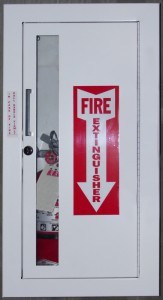Commercial fires cost businesses in the U.S. billions of dollars per year in the form of property damage, loss of productivity, ruined/damaged equipment, and higher insurance premiums. The heavy financial burden of a fire is often enough to force small businesses to close their doors. Thankfully, this is a problem that can typically be avoided by following some basic practices regarding fire safety.
According to the Municipal Association Risk Management Services (MMARMS), there are approximately 70,000-80,000 commercial fires each year. Workplace fires may start from a number of different sources, which we’re going to discuss further below.
Common Causes of Workplace Fires:
Cigarette smoking among employees is one of the most common causes of workplace fires. Most states and cities in the U.S. have banned indoor smoking (to some extant), many businesses continue to allow their employees to light up inside. Ninety-nine percent of the time this won’t cause any issues, but there’s always a chance of a stray spark landing on gasoline, paper, lint or some other source of tinder to create a fire.
Restaurant and other food service businesses are at high risk for grease fires. When grease is spilled or dripped onto a heat source, it can trigger a large flame. This problem is made worse when a worker attempts to extinguish the flame using water.
Improperly storing flammable chemicals may lead to commercial fires. The Occupational Safety and Health Administration (OSHA) has strict standards regarding the storage, transportation, and handling of flammable chemicals to reduce the risk of fires in the workplace. Employers should familiarize themselves with these standards and execute them appropriately.
Of course, electrical failure is another all-too-common cause of commercial fires. Plugging too many devices into an outlet, using worn extension cords, or not properly grounding electrical equipment may all trigger fires in the workplace.
Tips To Prevent Workplace Fires:
- Clean up spilled oil, gasoline, and other flammable liquids in a timely manner.
- Keep a Occupational Safety and Health Administration (OSHA) and National Fire Prevention and Control Administration (NFPCA)-certified fire extinguisher on the premises (see our previous post for instructions on how to clean up fire extinguisher chemicals).
- Prohibit cigarette smoking indoors. Instead, place a self-extinguishing waste bin outside for smokers to use.
- Electrical wiring should only be installed and modified by a licensed electrician.
- Keep flammable chemicals and liquids stored in a fireproof cabinet.
- Remove leaves, limbs and debris from roof and gutters.
